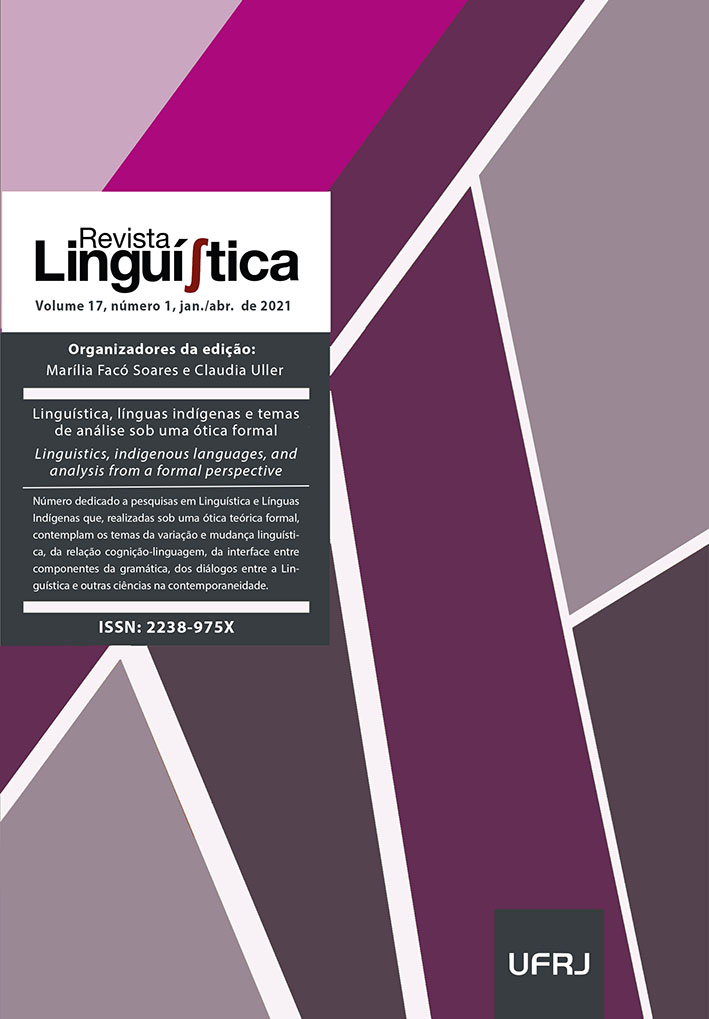Phonological reflexes of emphasis in Kwa languages of Côte D’Ivoire
DOI:
https://doi.org/10.31513/linguistica.2021.v17n1a54533Keywords:
segmental and tonal processes, negation and final particles, ideophones, nominalization of the verb and types of emphasis marking, register raising, downdrift and upsweep.Abstract
This paper examines the phonological characteristics of expressions conveying emphasis, insistence, and contrast in some Kwa languages of Côte d’Ivoire. Our particular interest is to reveal how such phenomena are realized in tonal languages, and we thought it worthwhile to study more than one language yet to confine the study to a closely related group. In this group a variety of phonological strategies are used to mark emphasis, including prosodic devices that have not been widely reported in the literature for Niger-Congo languages, and that may or may not differ from other language groups. Thus, our goal was to capture the various phonological means for expressing emphasis in the Kwa languages of Côte d`Ivoire. For that purpose, we surveyed emphasis marking in several Kwa languages, collecting both phonological reflexes of emphasis that go beyond the emphatic particles and raised intonations that are most frequently cited.Downloads
Published
Issue
Section
License
Authors who publish in the Revista Linguí∫tica agree with the following terms:
The authors maintain their rights, ceding to the journal the right to first publication of the article, simultaneously submitted to a Creative Commons license permitting the sharing with third-parties of published content as long as it mentions the author and its first publication in the Revista Linguí∫tica.
Authors may enter into additional agreements for the non-exclusive distribution of their published work (for example, posting in online institutional or non-profit repositories, or book chapters) so long as they acknowledge its initial publication in the Revista Linguí∫tica.

The journal Revista Linguí∫tica is published by the Post-Graduate program in Linguistics of UFRJ and employs a Creative Commons - Attribution-NonCommercial 4.0 International (CC-BY-NC).









